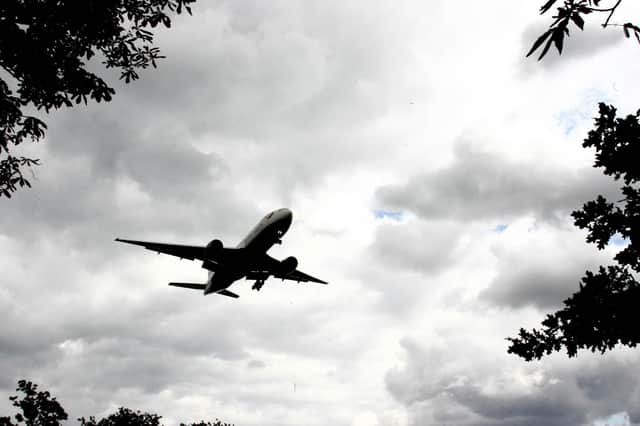Shoreham airport handles over 10,000 more flights in 2021


Shoreham airport handled over 10,000 more flights last year, figures show.
Despite more flights entering and leaving the UK as a whole in 2021, the number of passengers fell to a record low, sparking criticism from environmental organisations over the impact on the climate of running emptier flights.
Advertisement
Hide AdAdvertisement
Hide AdCivil Aviation Authority data shows 46,479 planes took off or landed at Shoreham airport in 2021.
This was up 40% from 33,181 in 2020, which was the lowest number since comparable records began in 2010.
By comparison, there were 46,223 flights in 2019, before the coronavirus pandemic.
Last year saw just 1.6 million flights to and from UK airports – the second-lowest number since 2010, but up from 1.5 million in 2020.
Advertisement
Hide AdAdvertisement
Hide AdHowever, despite a rise in the number of flights nationally, the figures show the number of passengers passing through UK airports fell from 74.4 million to 65.4 million – the lowest on record.
This suggests planes were carrying fewer passengers than ever last year.
Dr Doug Parr, chief scientist for Greenpeace UK, said: "The aviation industry is perfectly happy to release climate-wrecking emissions even when there aren’t enough passengers for them to make them any money from it.
"Anyone who claims that they’ll decarbonise without being legally compelled to do so is comically naïve.”
Advertisement
Hide AdAdvertisement
Hide AdAnna Hughes, director of campaign group Flight Free UK, said all flights harm the climate – not just empty ones – but that it is "ludicrous" that planes are flying half-empty.
She added: "This is a critical time for the climate and we should be reducing our fossil fuel use, not burning it unnecessarily in near-empty flights.
"The laws of supply and demand say that fewer people flying should mean fewer planes in the air, but somehow this is not reflected in airlines' habits."
Meanwhile, separate figures released by the Department for Transport show 14,500 so-called 'ghost' flights took place over a 19-month period during the pandemic.
Advertisement
Hide AdAdvertisement
Hide AdThe international flights, which had no more than 10% of their seats filled, were operated mainly to transport cargo or repatriate Britons stranded overseas.
Airlines have traditionally run ghost flights when they need to hit the 80% threshold for using valuable take-off and landing slots at congested airports to retain the right to use them during the following year.
Slot rules were suspended at UK airports shortly after the start of the pandemic but were reintroduced at 50% in October 2021.
Ms Hughes said the practice appears to show airlines are “focused on growth at all costs”.
Advertisement
Hide AdAdvertisement
Hide AdBut a DfT spokeswoman said: “Flights may operate with low passenger numbers for a whole range of reasons, including carrying key workers or vital cargo.
"However, we acted swiftly to prevent empty aircraft needing to fly solely to retain their slots.”